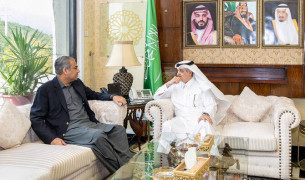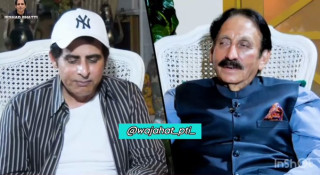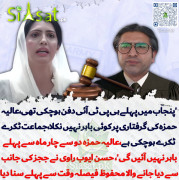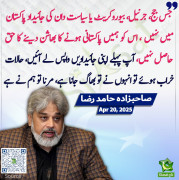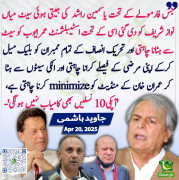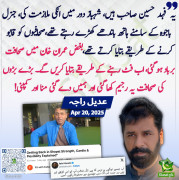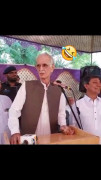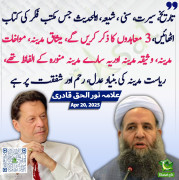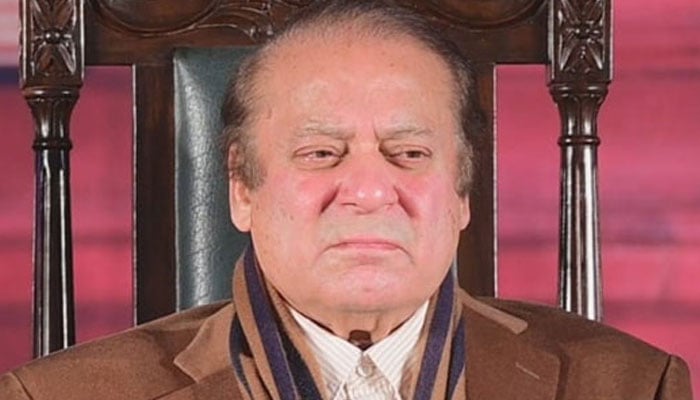Sohail Shuja
Chief Minister (5k+ posts)
IT has become de rigueur these days for many commentators to speak alarmingly about the pitfalls of political dynasties. The ‘dynasties’ they particularly disapprove of are the Sharif and the Bhutto families.
Yet it is ironic that even as they oppose ‘dynasties’, they are happy to support a ‘monarchy’, even knowing that it is monarchies that give rise to dynasties.
If some parties are called dynasties then consistency demands that parties where no leaders are given any importance except the supreme leader, and where other party leaders who have tried like Icarus to fly too close to the sun have seen their wings melt away, should be called monarchies.
After all, there is no qualitative difference between arguing that only one family is capable of ruling and only one man is capable of ruling forever. Neither is there any difference between one family or one man having a chokehold on a political party. Unfortunately, it is these dictatorial chokeholds that produce disastrous decisions, especially in the appointment of unsuitable people to important positions.
Political dynasties are of course not unique to Pakistan. The Nehru/Gandhi family in India, the Mujib family in Bangladesh, the Bandaranaike and Rajapaska families in Sir Lanka, the Aquino and Marcos families in the Philippines are examples.
When our Constitution gives so much power to party leaders, what power can legislators have?
But in Pakistan the power of party leaders is sui generis in its totality and renders all parties — save the Jamaat-i-Islami — dynastic parties, whether run by a ruling family or a supreme leader. Our Constitution, institutions and politics all play a part in making leaders dictatorial.
After changing prime ministers more frequently than summer interns during the first 11 years, we went into three successive martial laws that lasted for 30 years until 1988, except for four years of Zulfikar Bhutto’s constitutional rule, albeit under an emergency that suspended basic rights.
The next 11 years saw two elected prime ministers trade places four times, with four caretaker prime ministers put in place each time an elected prime minister was ousted with Rawalpindi’s help. This merry-go-round only ended when Gen Musharraf took over.
An avenue of instability during those years was Article 58(2)(b), a constitutional provision that allowed presidents (with a wink from the establishment) to remove elected prime ministers. Another was the changing of loyalties of legislators through the influence the establishment could bring to bear on them. To counter them, the National Assembly passed the 14th Amendment in 1997 that deleted 58(2)(b) and also took away powers from legislators to vote according to their own will. Now, rather than their conscience or fear or money, legislators had to vote according to the wishes of their party heads.
After martial law ended, the 18th Amendment again deleted 58(2)(b), which Gen Musharraf had brought back, and also delineated the issues where legislators had to vote according to the desires of their leaders, even if they were elected as independents, unless they were willing to lose their seats.
Recently, the Supreme Court has gone a step further, a step perhaps not even envisaged in the Constitution, and said that a legislator’s vote against his parliamentary leader’s orders can’t even be counted.
So a journey that began with ostensibly trying to stop the meddling of institutions but in reality was also meant to free the party leaders from the ‘nuisance’ of listening to their legislators, has finally rendered parliament nearly superfluous. No legislator now has any say on who the PM should be, what the budget should be and what constitutional amendments should be approved. It is only the few party leaders who get to decide.
When our Constitution gives so much power to party leaders, what power can legislators have?
Why would there not be dynasties or monarchies?
Party heads would contend this was done to contain the establishment’s influence on legislators. But our living experience tells us that when the establishment wants to interfere, it finds a way. So these amendments haven’t reduced the establishment’s ability to interfere, just given party heads total power over individual legislators.Why would there not be dynasties or monarchies?
The way to make parties more democratic is to get rid of laws that restrict a legislator’s right to vote. The only caveat being that all votes should be public as people should know how their representatives voted. Legislators who don’t vote for the interest of their constituencies will get defeated.
Of course, the power of leaders is also preserved by how politics are conducted in Pakistan. In America if you know a politician’s views on abortion, you can guess his views on immigration. American politics is played out on a left-right ideological spectrum. If politicians are on the left on one issue, they are mostly on the left on all issues.
Not so in Pakistan. Here political parties are based not on ideology but reflect the values and interests, and it must be said, the ethnicity of their leader. That’s why family is important as it reflects, in voters’ consciousness, the same values and interests. Moreover, the establishment’s power has made party leaders more insular, perhaps even paranoid, and that’s why they don’t let anyone but family come to the top.
An example comes from KP where Ghaffar Khan’s Khudai Khidmatgar vote bank was inherited by his son Wali Khan, who went on to become head of his faction of the National Awami Party (Maulana Bhashani headed the other). When Wali Khan was jailed, Begum Nasim Wali ran the party. Eventually, his son Asfandyar Wali took over the party. Even though ANP is replete with leaders who have sacrificed their family members’ lives for this country, the next leader will be Asfandyar’s son Aimal Wali.
This tells us that the vote belongs to the leader, is jealously guarded and is passed down families; parties are merely vehicles leaders use to institutionalise their popularity.
It’s possible, though unlikely, to have a successful non-dynastic — both non-monarchical and non-family — party in our part of the world. An example is the Bharatiya Janata Party, which had Atal Bihari Vajpayee and now has Narendra Modi as its leader. But BJP’s identification with Hindutva politics makes it possible for it to rely on ideology as opposed to a ruling supreme leader or family for success. Thus perhaps for a non-dynastic party to be successful, an ideological base is necessary.
Whether such parties will arise in Pakistan remains to be seen.
The writer is a former finance minister.
Published in Dawn, March 1st, 2023
- Featured Thumbs
- https://i.dawn.com/primary/2023/02/63fe8fe4c9ed2.jpg


